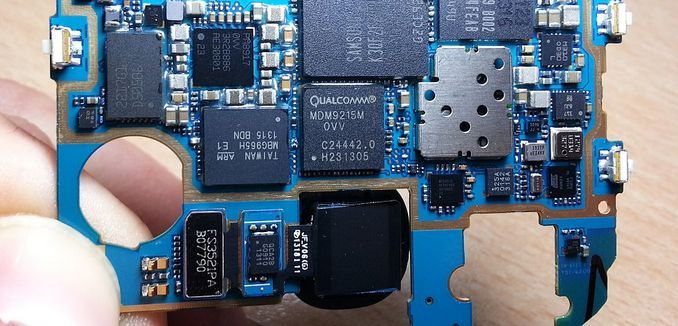Qualcomm, one of the world’s leading mobile phone chip manufacturers, has reportedly agreed to buy the Israeli chip maker Wilocity for $300 million.
According to financial website TheMarker, Qualcomm’s potential acquisition could cost the company up to $300 million. Wilocity shipped its first chips commercially at the end of 2012, and announced its first smartphone-based chip offerings at this year’s Mobile World Congress.
At the event, Wilocity showcased the Sparrow Wil6300 chipset and prototype smartphone, which uses 802.11ad network technology, also known as WiGig. The technology uses the 60GHz radio frequency band — far higher than today’s 802.11g, 802.11n, and 802.11ac used in networking — and is able to transfer data at speeds of up to 7Gbps. However, this rapid transfer is at the expense of range, which is potentially limited to meters, and may not be able to do so much as penetrate walls.
The Times of Israel reports that Qualcomm already has a strong presence in Israel:
When the deal is finalized, Wilocity will become part of a strong Qualcomm presence in Israel. In 2010, the company bought iSkoot, which started out life developing enhancements for Skype and, in the service of Qualcomm, makes social media apps for At&T (Social Net), Verizon (Social Beat) and T-Mobile (Social Buzz), among others. In 2012, Qualcomm snapped up DesignArt Networks, which develops small cell technology for cellular base stations and wireless backhaul infrastructure. Along with DesignArt, Qualcomm in 2012 bought the assets of Israel’s EPOS, which specialized in digital ultrasound technology, engineered for input uses such as pen, stylus and gesture recognition.
Qualcomm invested in Israeli start-ups via its Qualcomm Ventures funds. The fund has contributed money to eight Israeli start-ups, including companies that specialize in networking and backhaul solutions (Siklu), online shopping solutions (Corrigon) and crowdsourcing mobile consumer apps (Waze). The fund also invested in Wilocity.
Echoing the enthusiasm of investment guru Warren Buffett, Qualcomm’s founder Irwin M. Jacobs told the Times:
Israel’s biggest contributions to mobile technology are designing better ways of controlling things, increasing data rates and enabling us to squeeze more out of existing bandwidth, using technology such as femtocells. In addition, Israelis are developing some wonderful apps, such as apps that can be used for telemedicine, enabling doctors to diagnose and consult with patients remotely.
Major credit ratings agencies recently gave the Israeli economy their highest ratings, and the World Economic Forum last year credited the country with developing “healthy, educated, and able workers.” The high profile acquisitions of Waze and Onavo last year have spurred impressive economic growth. These acquisitions, as well as Intel’s recent $6 billion commitment to its Kiryat Gat facility and the opening of Lockheed Martin’s new office in Beersheba, bode well for Israel’s future as a world leader in technological innovation.
[Photo: Köf3 / WikiCommons ]




